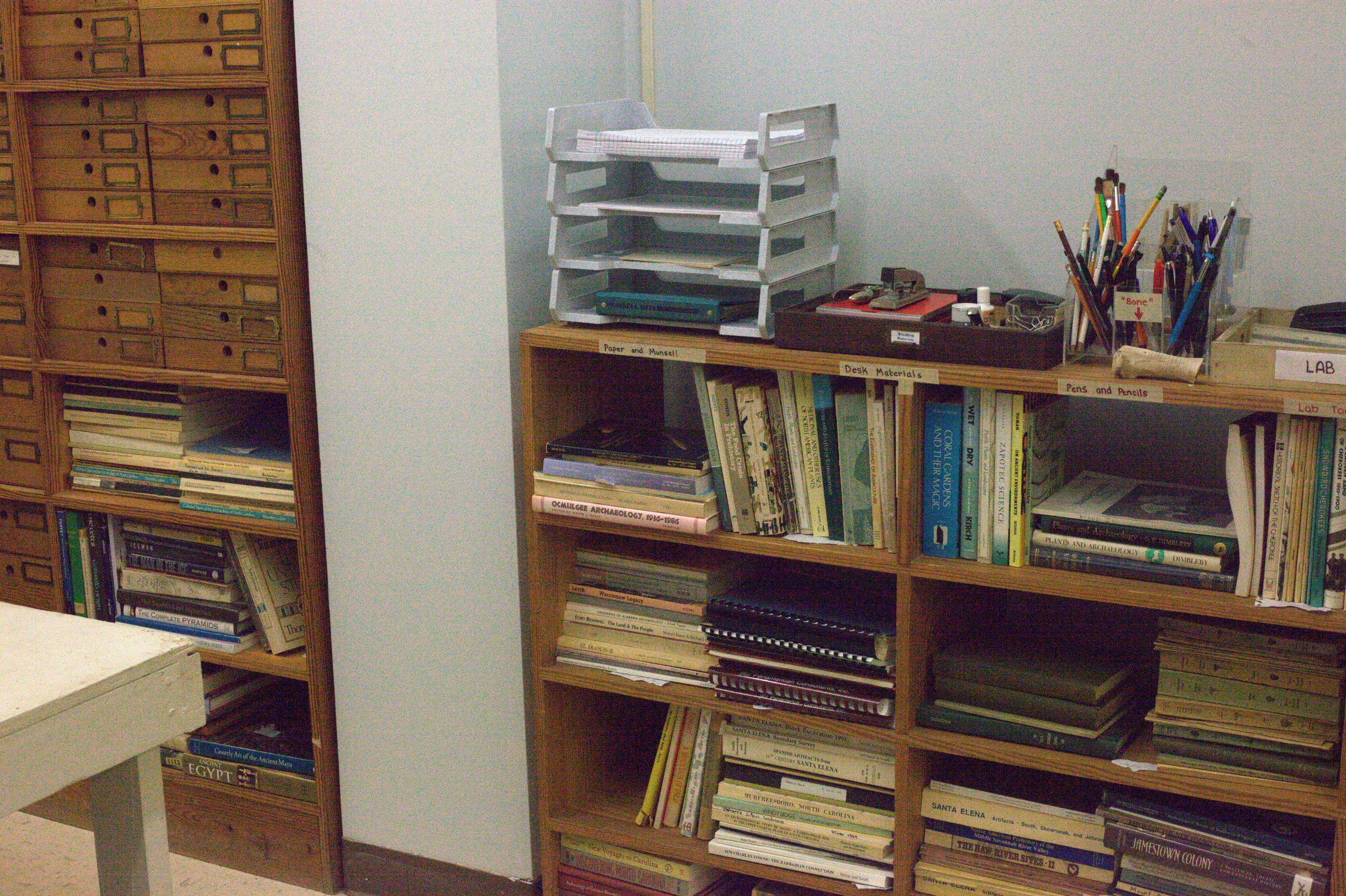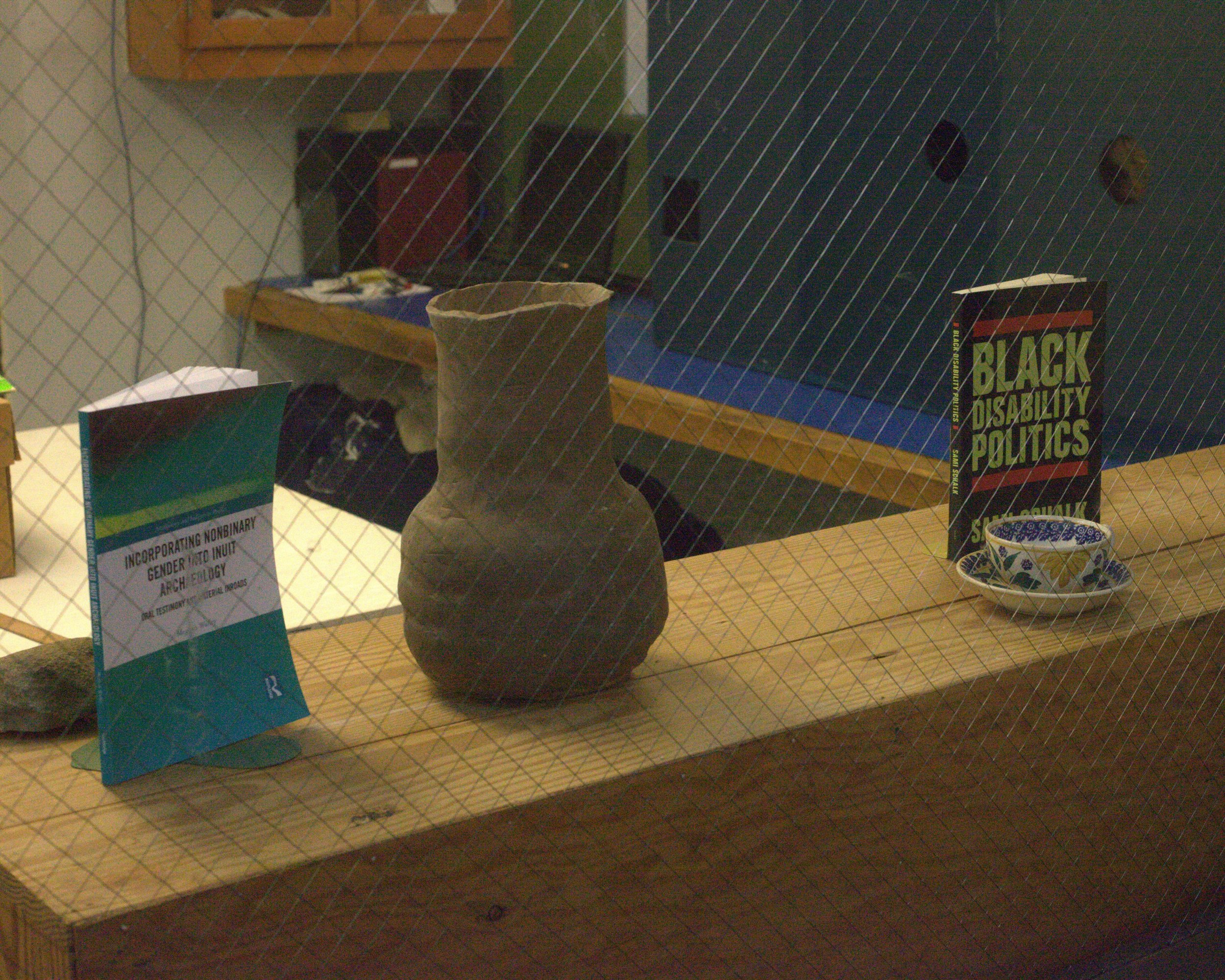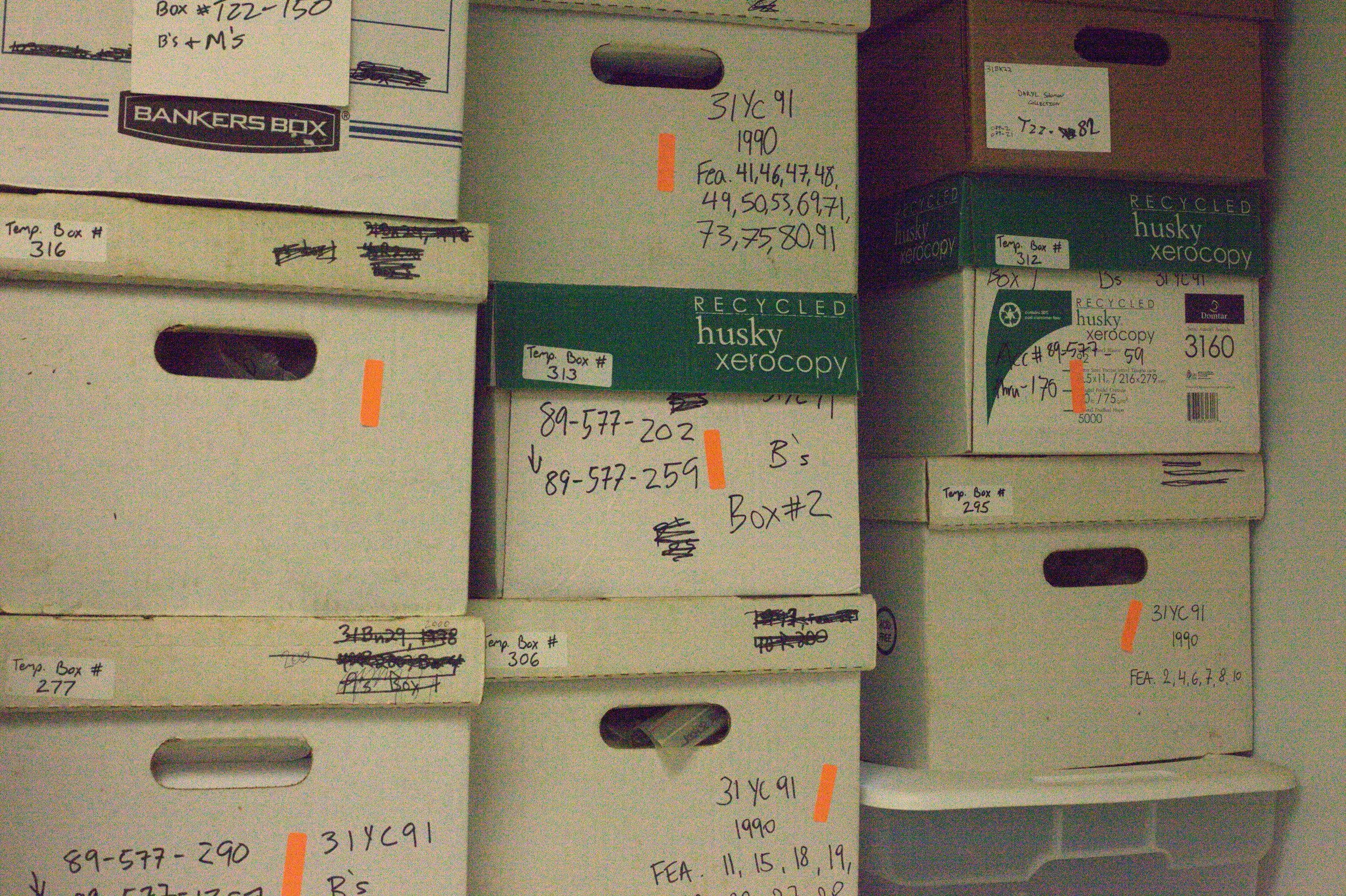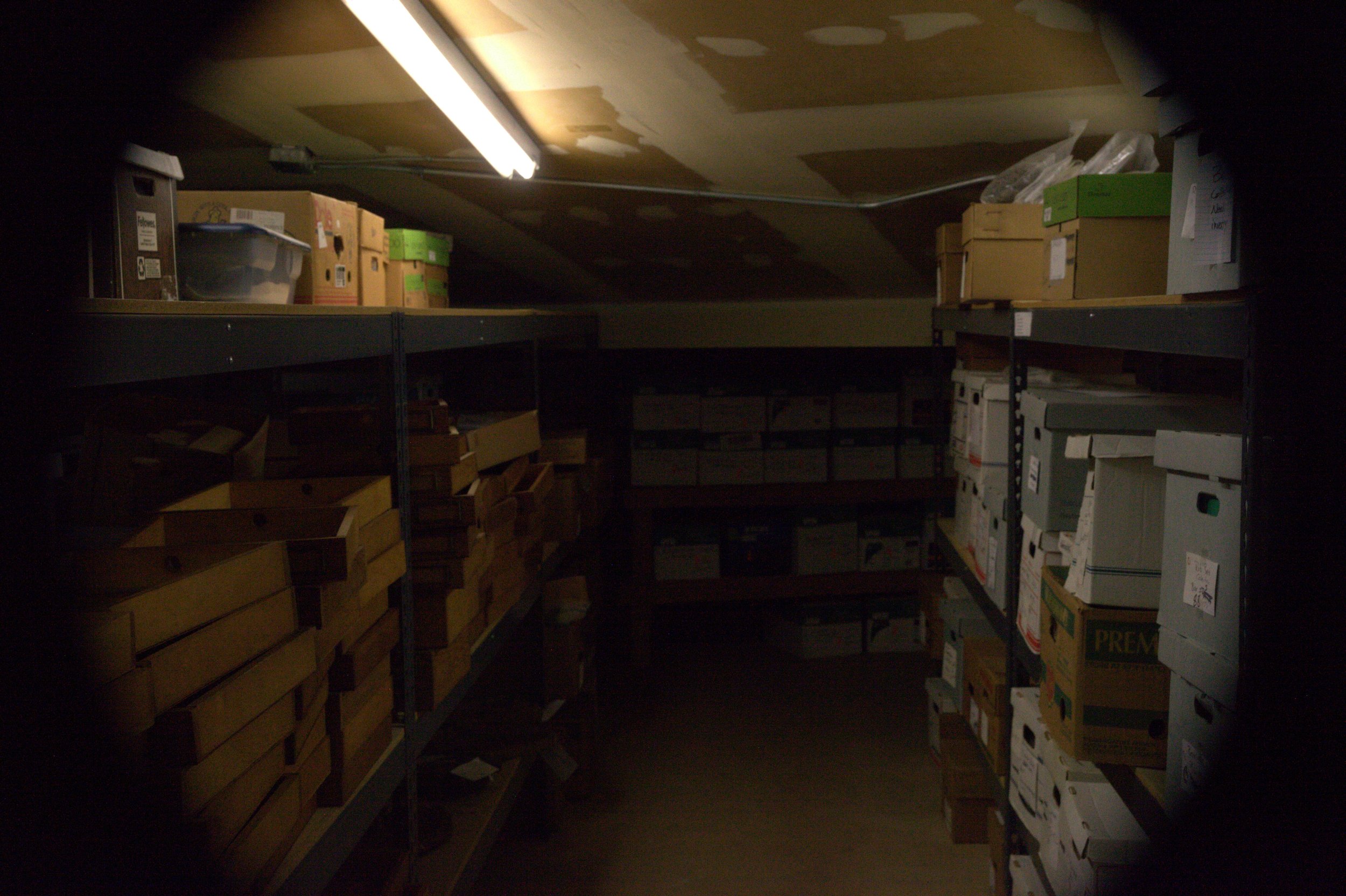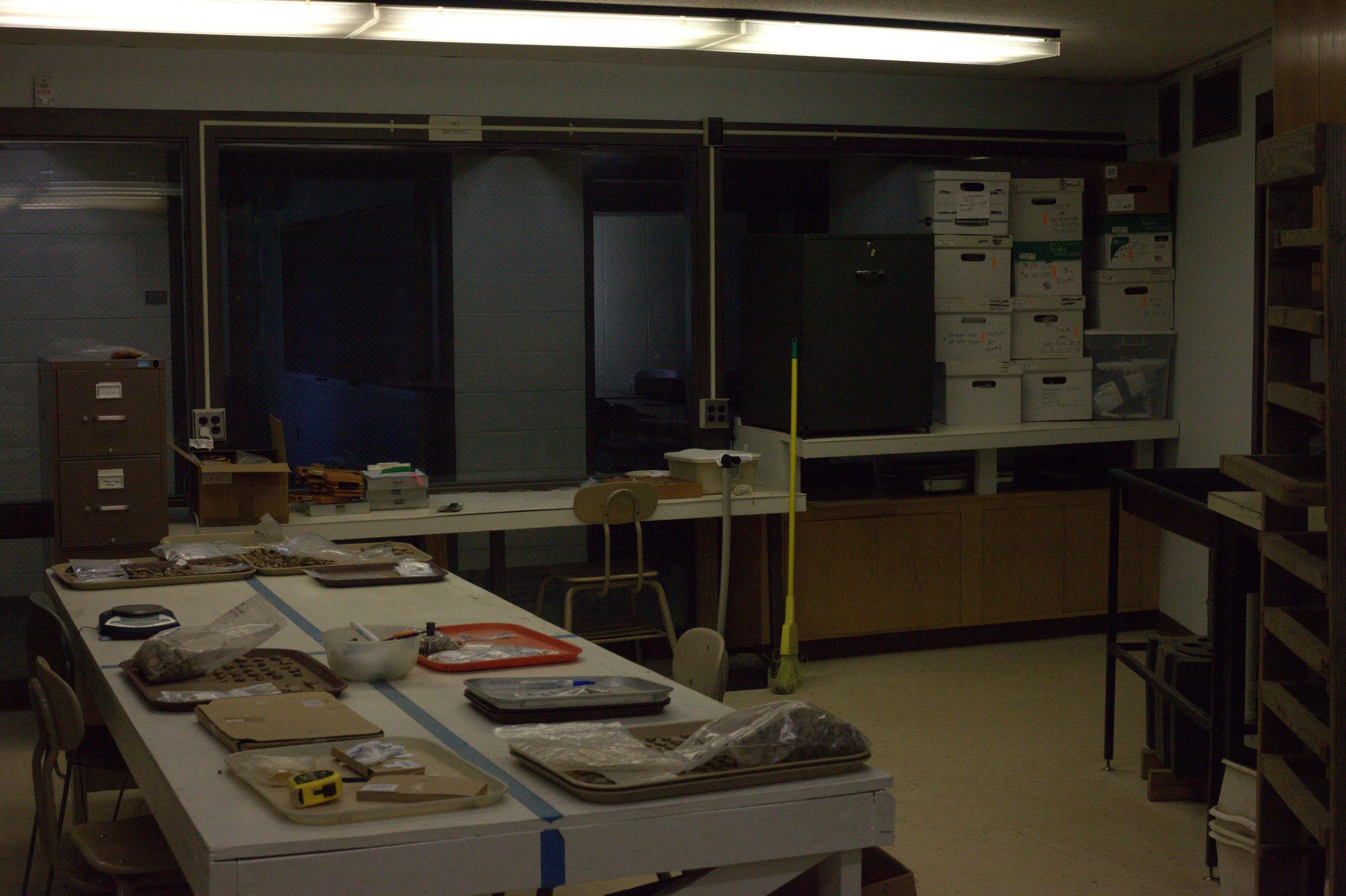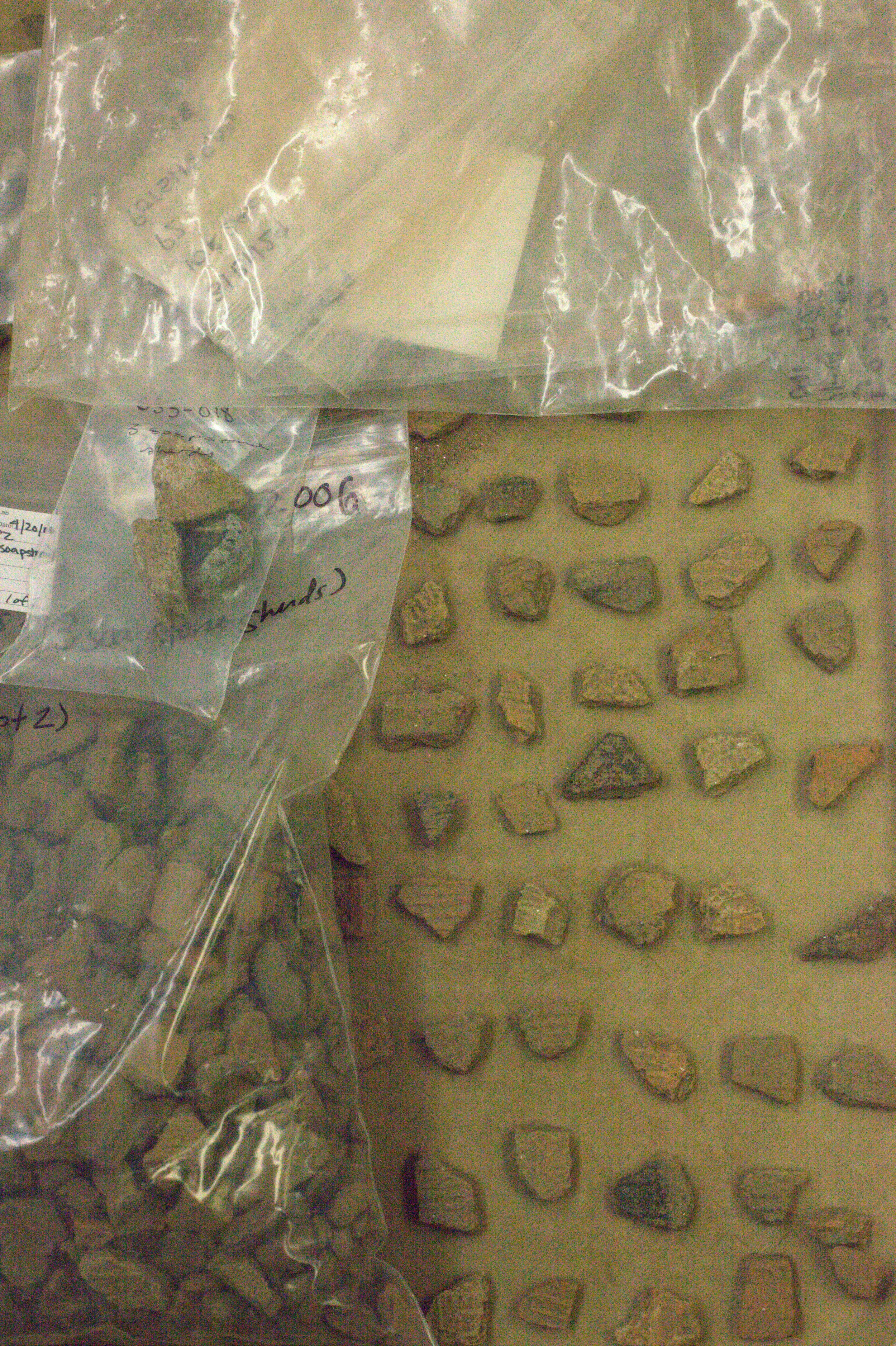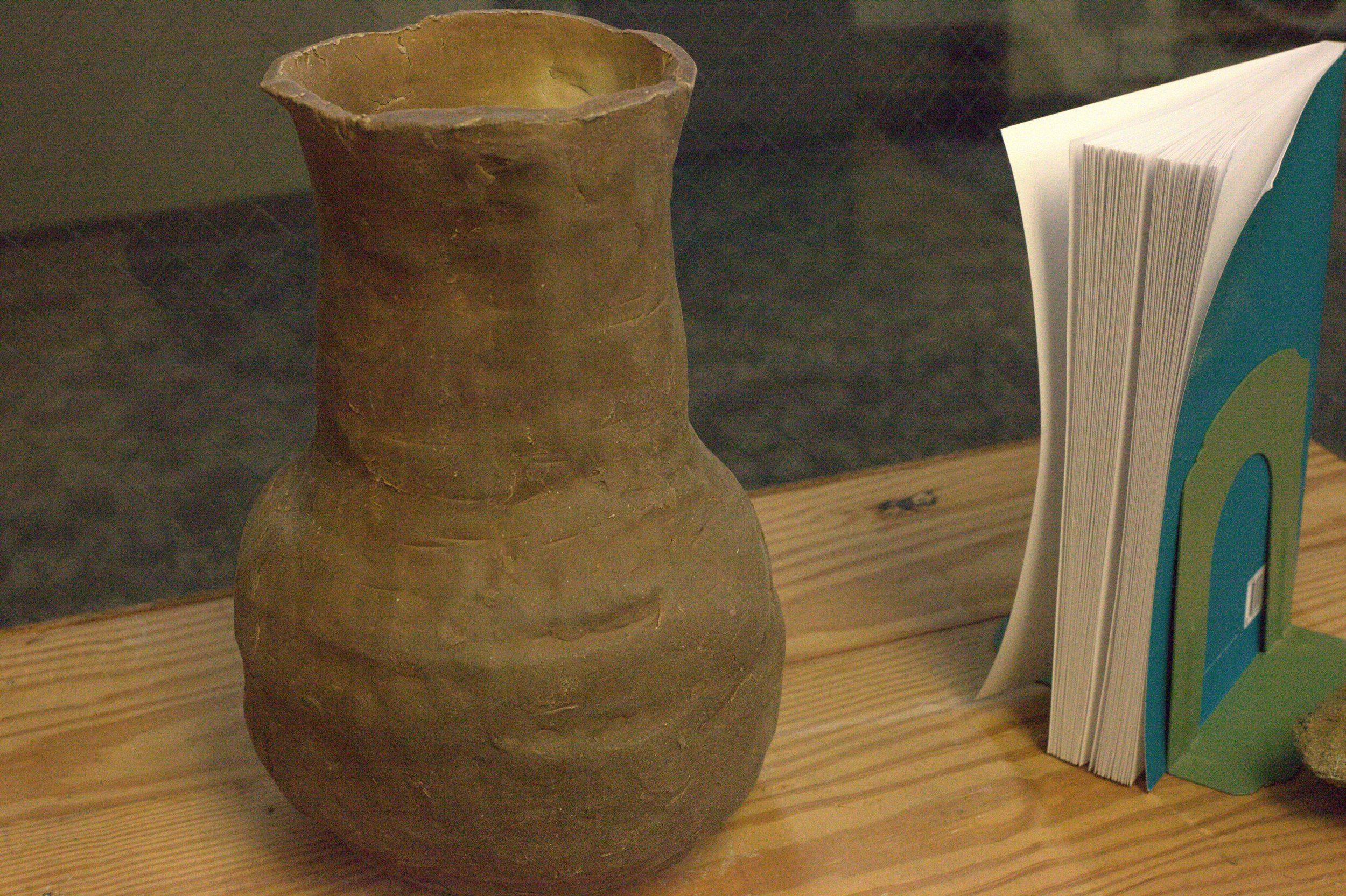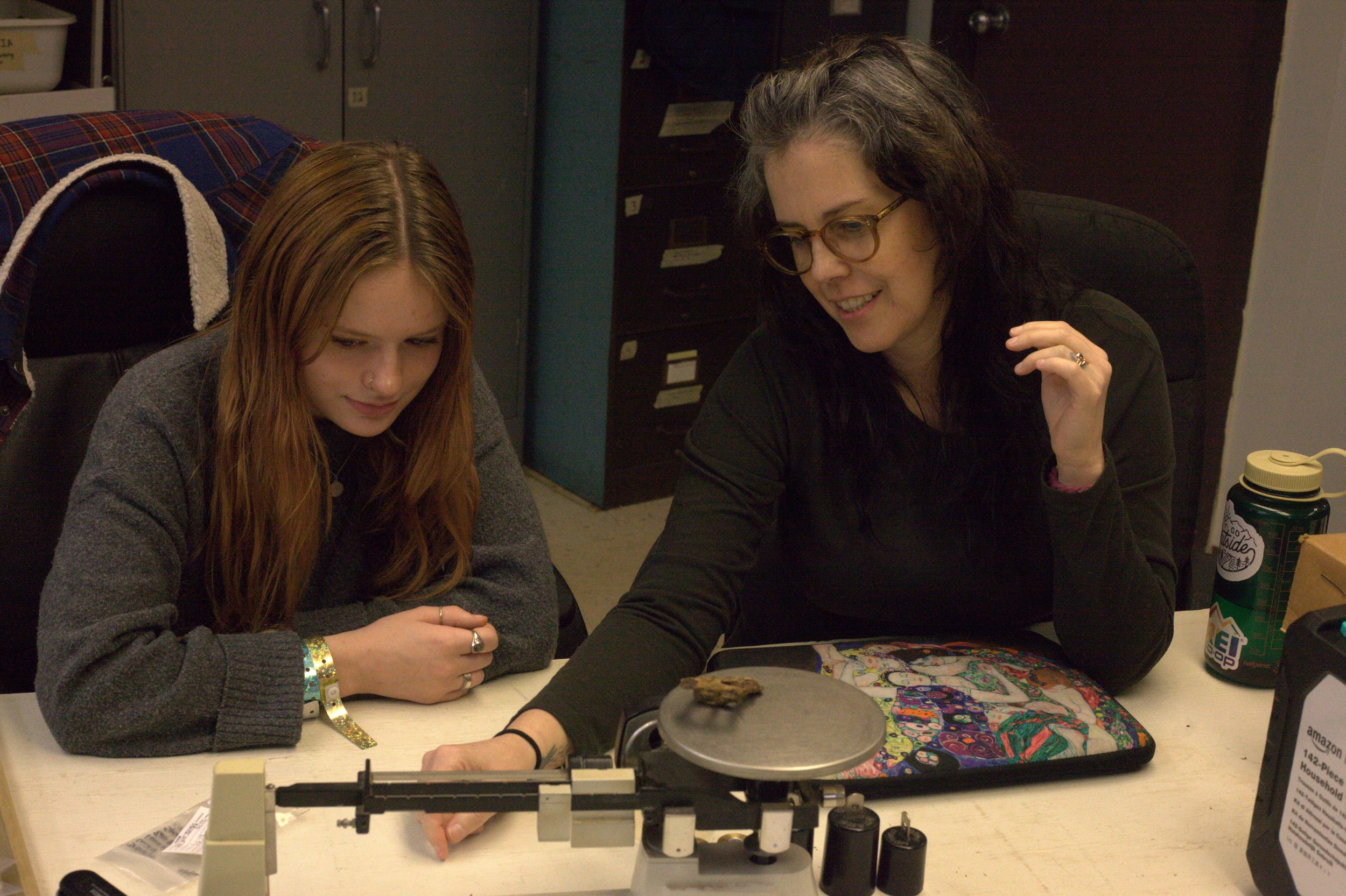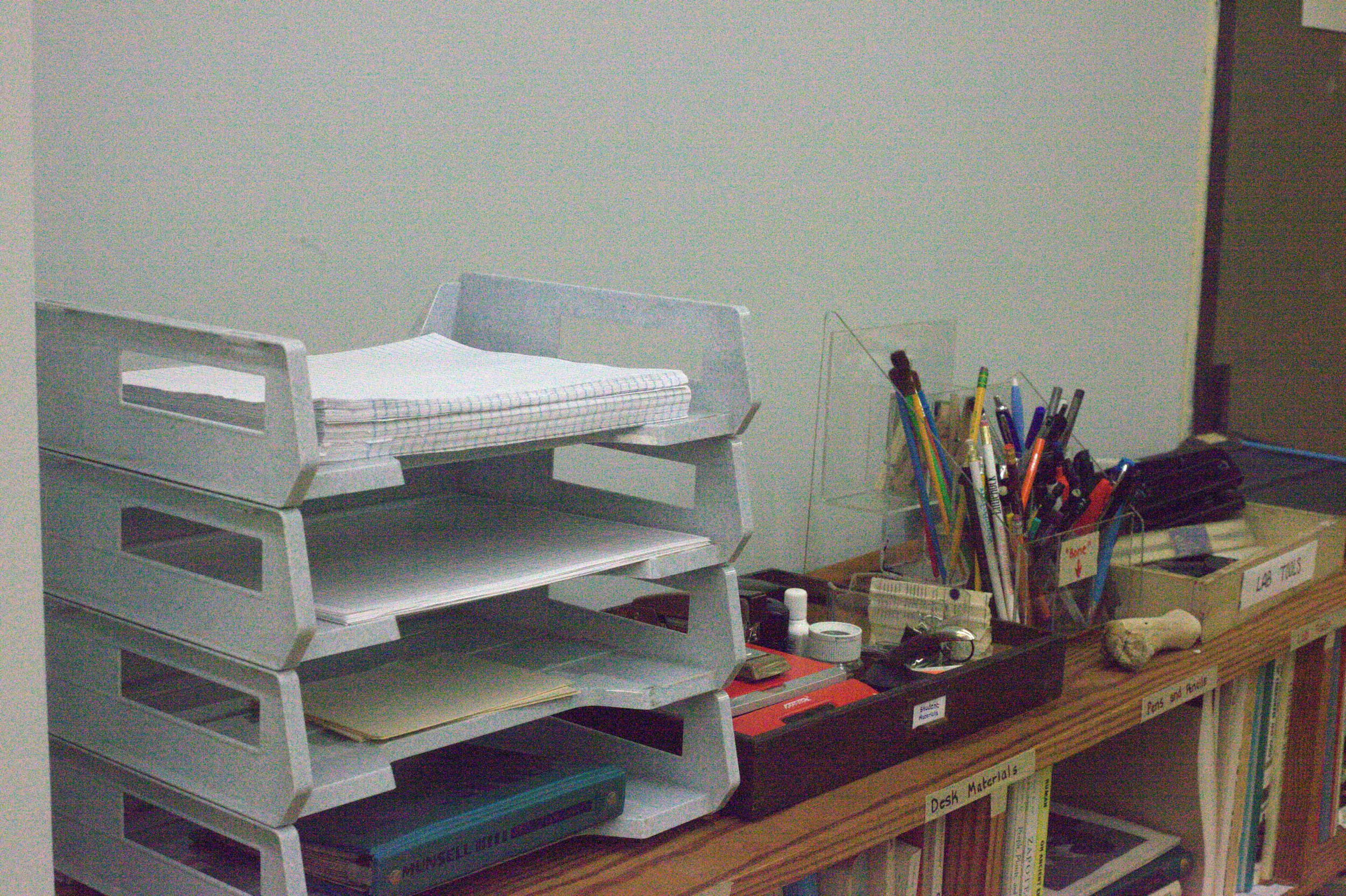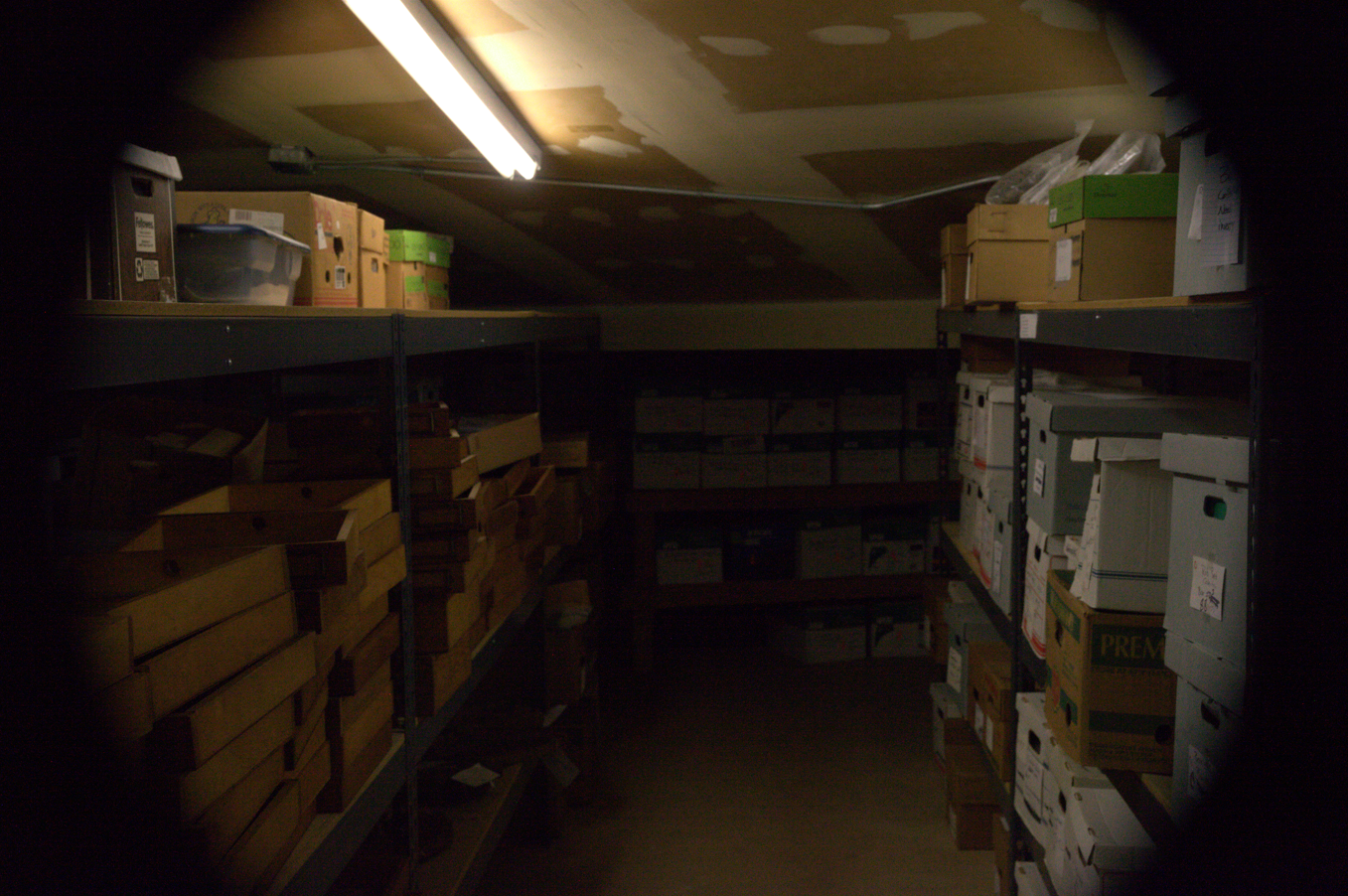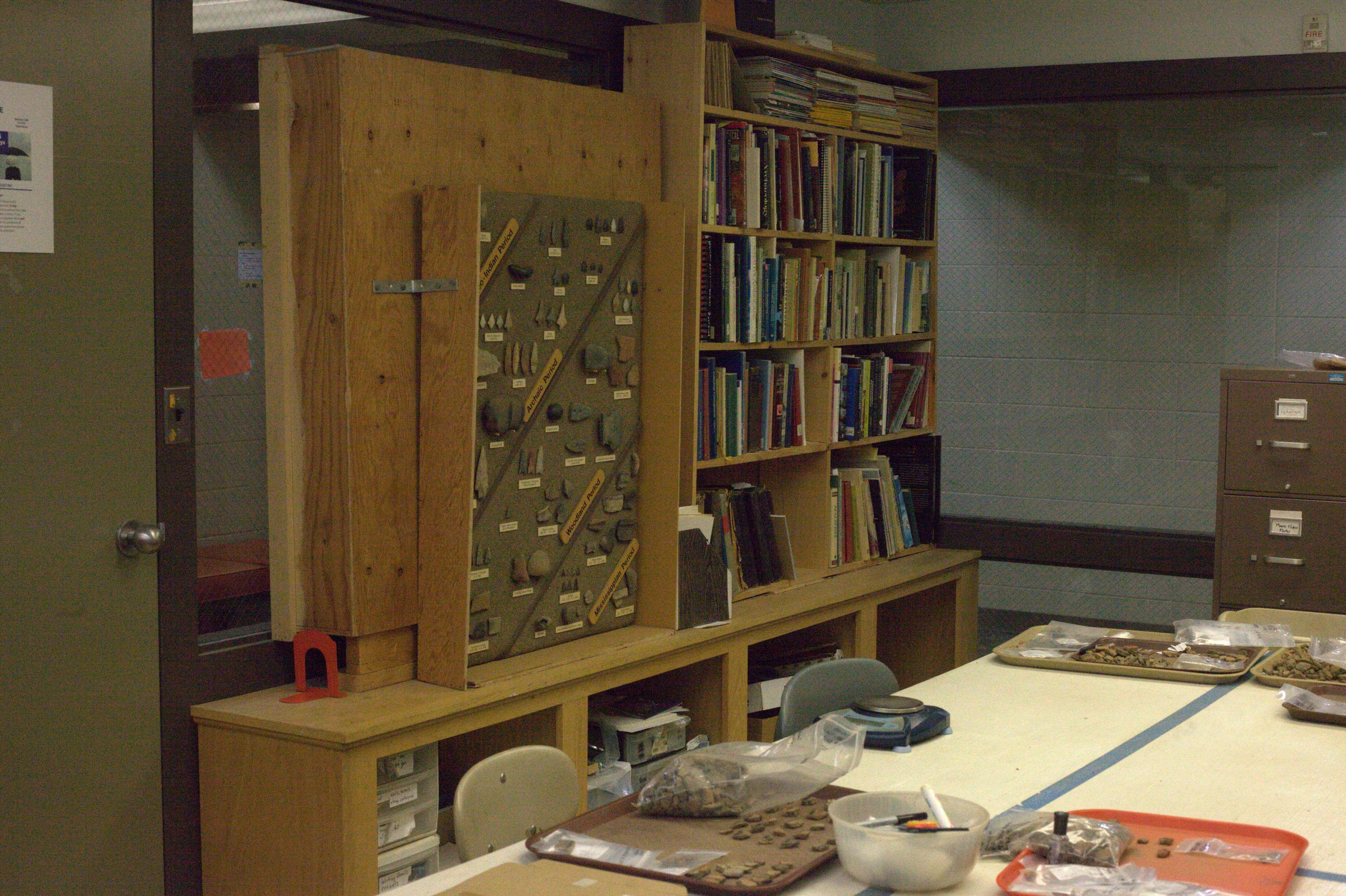Warren Wilson’s Archaeology Crew Digs Up New Lab
Alexandra Gore | February 21, 2024
The Warren Wilson College (WWC) Archaeology Crew has been hard at work renovating the Archaeology Lab to allow for an open, exploratory space for students. In an effort to make reparations for Indigenous groups and broaden history beyond the colonial story, the lab is encouraging a care-based model centered around education and awareness.
Located on the second floor of Jensen, the lab’s windows used to be covered in paper, making it nearly impossible to see the work being done inside. Now, passersby get a clear view of the lab and the crew’s work, which includes a wide variety of tasks like marking and labeling artifacts.
Behind the operation is assistant professor of Material Culture and Archaeology Scotti Norman. As the supervisor of the Archaeology Crew, she wanted to see a shift in how archaeology is used as a tool and believes an important step is making education accessible.
“I think archaeology as a discipline has a very dark history that most of our work now is trying to make reparations for, so that history intersects with the theft of Indigenous burials and objects and the use of those objects for the sake of knowledge and prestige within academia, rather than as a means of explanation and education,” Norman said. “We're really trying to start from a care-centered model. To think about how we can use objects broadly to teach students about the importance of objects, how they carry parts of people, how they're meaningful, how they have lives like we do.”
Norman also hopes to decolonize our understanding of who an archaeologist is.
“Beyond the gatekeeping, the fact that in archaeology, historically, there's been one type of person that does archaeology — cishet (cisgender, heterosexual) white men — creates an understanding of the past replicated in that image of who has power and who doesn't, whether that be from a gendered perspective, a race perspective, an intersectional perspective,” Norman said “And so, the only way the field can make any strides would be to include other voices and to and to actively grow and support those voices.”
As part of making the lab more accessible, the crew removed books with offensive material and brought in newer books to show new methodologies for archaeology, like black feminist archaeology and Indigenous theory. They are also working with the library to allow students to check these books out.
Norman describes the crew as entirely self-sufficient, as all of the lab’s tasks and projects are brought up and executed by crew members.
Cynthia Janda, a senior at WWC, is the lab manager and has been on the crew for two years. With an artifact excavated from their current project laid in front of her — a button from a Navy uniform found at a historical Black homestead called Boyd Cabin — she explains the crew’s process of identifying artifacts.
“Archaeology has to do with excavation, finding artifacts, correlating it with sometimes documentation, sometimes oral tradition — sometimes there's textile tradition,” Janda said. “There's all different ways of keeping record of things. But since this is the 19th and 20th century, it's going to be written documentation. I found, that would have added up, the draft registration card for three of the boys that would have been at the proper age. And so I know that this button possibly belonged to one of these three.”
The Archaeology Crew has opened doors for Jane Thomas, a first-year student on the crew, to shift her perspective on figures of the past.
“Baby stuff always gets me,” Thomas said. “A lot of the artifacts are pots and tools, and so you just think about them in the context of working and that's different. But like, they were playing games, and they were having fun. It's so cute.”
Along with the renovation came a reenvisioning of the lab’s mission statement. The updated statement reads:
The Warren Wilson Archaeology Lab recognizes archaeology's dark history of colonization and egocentrism, and seeks to make reparations for this harm. Part of that process is transparency in practices and ethical treatment of cultural materials. The Warren Wilson Archaeology Lab vows to (1) foster clarity and informed consent in our research, (2) conduct respectful and care-based laboratory processes for material culture, and (3) regularly (re)distribute privileges to groups historically burdened by archaeological practice.
Any student can create a proposal for the lab’s rotating exhibits, which center around the new mission statement.
“If students are not interested in taking an archaeology class — which is fine, I know it's not for everyone — they can see this side of things we're doing with ethical curation and exhibitions,” Norman said. “So students have to write a proposal for them, and part of that proposal is thinking about how it aligns with our mission statement in terms of ethics and care for objects and care for people.”
It is important to note that the lab does not contain any human remains. Norman explains why she immediately stops digging when she comes across any remains of that kind.
"The ethical reason is that it can cause physical and psychological pain and harm for many Native groups if the remains of their ancestors — that includes physical bones, but also burial items — are visible or removed from their original resting place,” Norman said. “So, when those ancestors are interred, they, for many groups, are not supposed to be seen by anyone else, right? It's harmful.”
Students who are interested in taking a look at the work of the Archaeology Crew can stop by anytime there is a crew member present or email Scotti Norman at snorman@warren-wilson.edu.




